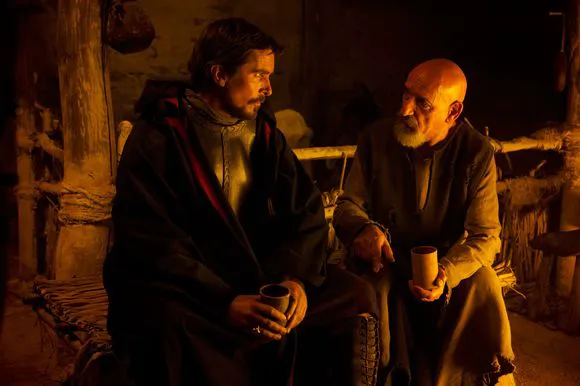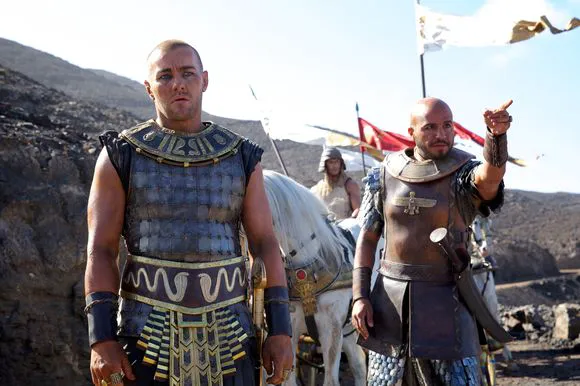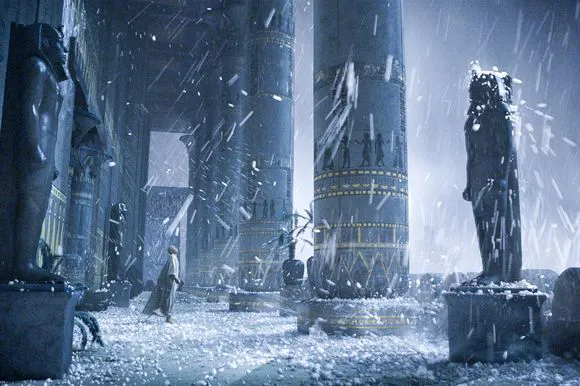Ridley Scott’s characters fall flat this time around – their personalities are questionable, their appearances unconvincing, and their motivations unclear. Impressive special effects alone aren’t enough to wow audiences; you need that spark of divine inspiration.
Pharaoh Ramses’ biological son and Moses, an adopted prince, grew up together, protecting each other and learning side by side. Only betrayal can sever this bond. As Ramses ascends the throne, he learns that Moses is a Hebrew, a son of slaves, an apostate, and a liar. The disgraced prince is banished to the desert, but this trial only strengthens Moses and reveals his connection to God, who sees in the young warrior a defender of the people, once expelled from the sacred land and now imprisoned in the chains of ancient Egyptian slavery. Years later, Moses returns to the Egyptian capital to free his people and lead them to the Promised Land, even if Ramses and his army stand in his way.
Exodus: Gods and Kings - A Critical Look
Darren Aronofsky once wanted Christian Bale for the role of Noah in his film of the same name, but scheduling conflicts forced him to replace Bale with Ridley Scott’s “Gladiator” partner, Russell Crowe.
We must humbly acknowledge from the outset that Christianity is not the most captivating religion with its ancient, instructive stories and miracles. Resurrection of the dead, healing the sick, feeding with bread and wine, ascension – with such a repertoire, it’s no match for ancient Egypt, where gods devour each other and exact bloody revenge on their offenders, or the Greeks and Romans, who concocted so many myths about their numerous deities that they could fill generations to come. Of course, Christianity is about something entirely different. But what works well in a Sunday sermon in a small church is not suitable for mass culture. Hence the modest number of large-scale productions, especially those approved by the Church, about the origin, formation, and trials that have befallen the world’s most widespread religion.

Preparing for the role, Christian Bale read many books sacred to Christians and Jews, attended Sunday school, and watched numerous films, from Roger Young’s “Moses” to Mel Brooks’ “History of the World, Part I.”
It’s not that filmmakers avoid this topic; it’s just easier to portray individual heroes defending their right to faith than to address the origins. Try touching the image of Christ, the apostles, or Old Testament heroes, and you’ll receive such a barrage of criticism from the Church that you’ll forget your own name. Fortunately, prohibitions and angry rebukes only attract great artists; it’s guaranteed publicity, rumors, and hype. Of course, no director will admit that hype is helpful, but, alas, with “Exodus,” one gets the impression that Ridley Scott made this film for only three reasons: to audaciously walk through religious shrines, to at least mentally return to the glorious days of “Gladiator,” and to finally work with Christian Bale.

“Exodus” is far from “Gladiator”; Scott’s new film is closer to “Kingdom of Heaven.” The scale of the sets here prevails over the characters, action interrupts the spiritual growth and development of the heroes, and technical conformity dominates historical realities and even common sense. However, all these distortions are secondary to the main question: why did Ridley Scott do all this? Of course, the author is far from the canonical representation of Moses, which is a big plus, but Scott didn’t have enough gunpowder to make the great liberator of the Jews from slavery a completely rethought character. Moses of “Exodus” is independent, has several bright features, and genuinely comes to faith through hardship, but you can’t call him a true God-fighter; Bale’s character is more of an outside observer, a bore, and even a whiner in places. Moses makes many claims to God, acknowledging, however, the power and inscrutability of His ways. This internal paradox deprives the character of some internal firmness, a core on which everything else would be based. Without this core, “Exodus” is as unstable as the desert dunes of Egypt.

Failing with the leading character, Ridley Scott “made up for it” with special effects and scale. The film abounds in awe-inspiring shots of the landscapes of the ancient Egyptian capital, the grandiose battle scene is worthy of the director’s previous works, and the visualization of the “ten plagues of Egypt,” shown in 3D, is literally stunning. Separately, we’ve seen a lot: alligator attacks, swarms of insects, even a rain of frogs has already been encountered – Scott only gave all this a biblical scale, seasoned with fear of God’s wrath. In fairness, it should be said that Scott approached the issue of “plagues” from a scientific point of view, although he didn’t fully deny their divine origin either. Not quite squeezed out there, not quite pulled up here – and now “Exodus” turns from a war chariot into a rickety cart, swaying from side to side from the slightest bumps.
Weak Characters and Missed Opportunities
Surprisingly, even a strong cast doesn’t allow the film to overcome its problems: John Turturro and Sigourney Weaver have catastrophically little screen time, Ben Kingsley portrays the usual fawning-subservient Itzhak Stern, Aaron Paul says maybe three words throughout the film, and Joel Edgerton, despite impressive makeup, doesn’t particularly resemble Ramses. As a result, the whole picture looks as if Ridley Scott didn’t dare to do something radical, but didn’t want to look too knee-bending before the world – “Exodus” is weak in characters, weak in plot, weak in the motives of the characters, weak in morality, and weak in the desire to connect with the audience. We know Scott as completely different, bold, decisive, and not recognizing authorities. Let’s hope that the great director’s journey through all these deserts doesn’t last for forty years; we don’t deserve such torture.